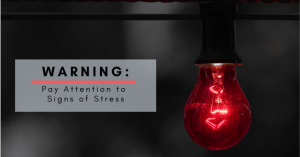
Farmers and ranchers are facing a time of unparalleled uncertainty and disruption. No one is left unscathed by the effects of COVID-19. Experts say dealing with stress during a time of social distancing makes the challenge even greater.
Even though it’s important to take one day at a time, Sean Brotherson, an Extension family life specialist at North Dakota State University, says it’s important to think with a long perspective.
“If you work in ag, you know there will inevitably be ups and downs – remember to take the long view. What happens today is not necessarily predictive of the future in 3 months, 6 months, 1 year, or 5 years,” Brotherson says. “Do your work one day at a time but take the long view and realize there are options available – resources and programs that can help.”
He encourages farmers to gather information, seek input, and avoid panic. Make informed, thoughtful decisions even though it’s mentally stressful to be in these circumstances.
Val Farmer, a clinical psychologist, and author, says under normal conditions, farmers and ranchers are great problem solvers. But when emotions are high and focused on the what-if’s of losing everything, he says they stop thinking and articulating. They can internalize difficulties and become depressed.
“The biggest mistake farmers make is identifying too much with farming or working. They become so focused on succeeding in agriculture that they neglect other parts of life which are crucial in stressful times,” Farmer says.
Pay attention to warning signs
So, how do you recognize stress? Warning signs of stress are like the flashing lights on the dashboard of your car, Brotherson explains. They are an indicator something might be wrong with your health and you need to slow down and get it checked out.
Stress typically manifests itself in these four areas of our health:
-Physical: Tension in your body, headaches, muscle aches or digestive difficulty such as upset stomach or ulcers. Existing health conditions might become exacerbated or more challenging. Other signs include extreme fatigue, shortness of breath, sweating or shaking.
-Emotional: Irritability, restlessness, feeling discouraged or hopeless, wanting to isolate yourself, having difficulty concentrating, or feelings of panic and anxiety.
-Behavioral: Difficulty with sleep, inability to relax or destress, anger issues, trouble with decision making, increased use of self-medicating approaches such as alcohol or other drugs, overeating or not wanting to eat at all.
-Relational: Communication difficulties, avoiding others or withdrawing, working long hours, avoiding interaction, or communicating with people.
If you need immediate help, call the U.S. National Suicide Prevention Lifeline at (800) 273-8255.






